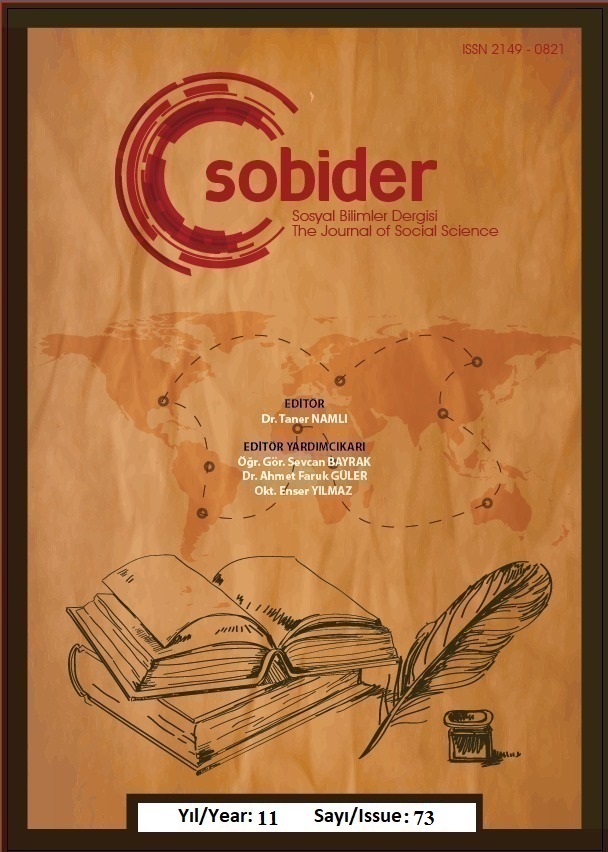ÖZEL GEREKSİNİMLİ ÖĞRENCİLERE YÖNELİK VERİLEN FOTOĞRAF ATÖLYESİ EĞİTİMİNİN ATILGANLIK BECERİLERİNE ETKİSİ
Author :
Abstract
Bu çalışmada, özel gereksinimli öğrencilerin atılganlık düzeyinin fotoğraf atölyesi eğitimi ile incelenmesi amaçlanmıştır. Araştırma, 14-18 yaş aralığındaki özel gereksinimli bireylerle, Ankara'daki sosyal kültürel mekanlarda yürütülmüştür. Çalışma süresince katılımcılara fotoğraf konusunda temel eğitim verilmiş ve ardından ‘Ergenlerde Atılganlık Ölçeği’ ile ‘Kişisel Bilgi Formu’ uygulanmıştır. Toplam 21 öğrenci ile yapılan analizler sonucunda, fotoğraf atölyesi eğitimi öncesi ve sonrası atılganlık becerilerinde anlamlı bir farklılık tespit edilmemiştir. Ancak, kız öğrencilerin iletişim başlatma becerilerinin erkek öğrencilere göre daha yüksek olduğu, kaynaştırma/bütünleştirme eğitiminde yer alan öğrencilerin duygularını ifade etmede özel eğitim meslek okulu öğrencilerine oranla daha iyi düzeyde olduğu ifa edilebilir. Anne ve baba eğitim düzeyinin ise öğrencilerin atılganlık becerilerinde anlamlı bir farklılık yaratmadığı tespit edilmiştir. Bu sonuçlar, özel gereksinimli bireylerin atılganlık becerilerini geliştirmeye yönelik eğitim yöntemlerinin gözden geçirilmesi ve farklı stratejiler geliştirilmesi gerektiğini göstermektedir.
Keywords
Abstract
This study aims to examine the assertiveness levels of students with special needs through photography workshop training. The research was conducted with individuals aged 14-18 in social and cultural venues in Ankara. During the study, participants received basic training in photography, followed by the administration of the 'Assertiveness Scale for Adolescents' and the 'Personal Information Form.' Analysis involving a total of 21 students revealed no significant difference in assertiveness skills before and after the photography workshop training. However, it can be stated that female students have higher communication initiation skills than male students, and students in inclusion/integration education are at a better level in expressing their emotions than students in special education vocational school. It was determined that mother and father education level did not create a significant difference in students' assertiveness skills. These results suggest that educational methods for improving assertiveness skills of individuals with special needs should be reviewed and different strategies should be developed.





